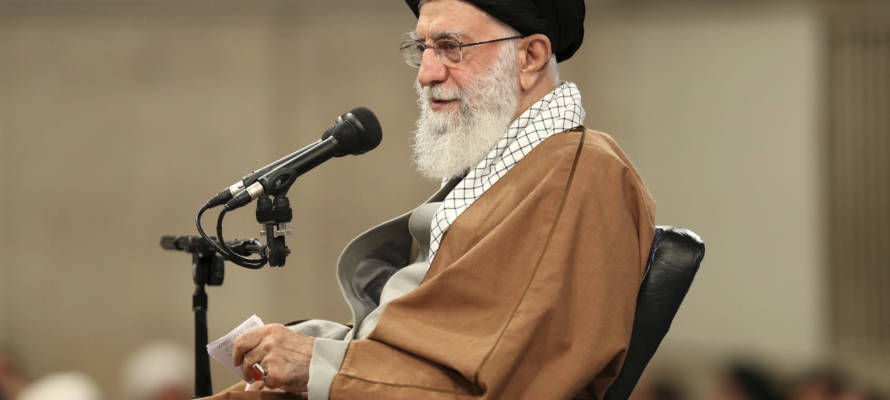‘Iranian security official’ says large-scale operation underway by IRGC to inspect all devices, most of which are homemade or imported from China and Russia.
By Reuters via Calcalist and United with Israel
Iran’s Revolutionary Guards Corps (IRGC) has ordered all members to stop using any type of communication devices after thousands of pagers and walkie-talkies used by its Hezbollah terror proxy in Lebanon blew up in deadly attacks last week, two senior Iranian security officials told Reuters.
One of the security officials said a large-scale operation is underway by the IRGC to inspect all devices, not just communication equipment. He said most of these devices were either homemade or imported from China and Russia.
Iran was concerned about infiltration by Israeli agents, including Iranians on Israel’s payroll and a thorough investigation of personnel has already begun, targeting mid and high-ranking members of the IRGC, added the official, who declined to be identified because of the sensitivity of the matter.
“This includes scrutiny of their bank accounts both in Iran and abroad, as well as their travel history and that of their families,” the security official said.
Iran’s Foreign, Defense and Interior Ministries were not immediately available to respond to the comments made by the security officials to Reuters.
In a coordinated attack, the pager devices of thousands of Hezbollah terrorists detonated on Tuesday across Hezbollah’s strongholds. On Wednesday, hundreds of Hezbollah terrorists’ walkie-talkies exploded. The attacks killed 39 and injured more than 3,000.
Lebanon and Hezbollah say Israel was behind the attacks. Israel has neither denied nor confirmed involvement.
The security official declined to give details on how the IRGC force, comprising 190,000 personnel, are communicating. “For now, we are using end-to-end encryption in messaging systems,” he said.
According to the same official, there is widespread concern among Iran’s ruling establishment. IRGC officials have reached out to Hezbollah for technical assessments, and several examples of exploded devices have been sent to Tehran for examination by Iranian experts.
Another Iranian official said the Islamic Republic’s main concern was the protection of the country’s nuclear and missile facilities, particularly those underground.
“But since last year, security measures at those sites have increased significantly,” he said in reference to stepped up measures after what Iranian authorities said was Israel’s attempt to sabotage Iran’s missile program in 2023. Israel has never commented on this.
“There has never, ever been such tight security and extreme measures in place as there are now,” he added, suggesting that security has been significantly increased beyond previous levels after the pager explosions in Lebanon.
Iran’s military uses a range of encrypted communication devices, including walkie-talkies, for secure communication, said the first Iranian source. While specific models and brands might vary, Iranian military communications equipment was often developed domestically or sourced from a combination of local and foreign suppliers, he said.
He said Iran’s armed forces have stopped using pagers for over two decades.
Tehran has developed its own military-grade radio transmissions through its defense industry to avoid reliance on foreign imports, especially due to Western sanctions imposed on Tehran over its nuclear program, he added.
However, in the past, Iran has imported communication devices from countries such as China and Russia and even Japan.
